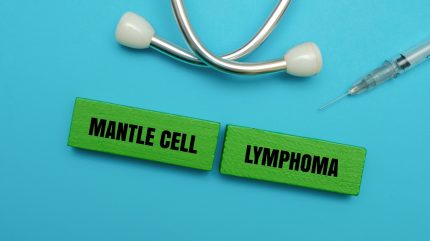
The US Food and Drug Administration (FDA) has accepted the new drug application (NDA) for BeOne Medicines’ B-cell lymphoma 2 (BCL2) inhibitor, sonrotoclax, and granted it priority review for use in treating adults with relapsed or refractory mantle cell lymphoma (R/R MCL).
The decision is intended for those who have previously been treated with a Bruton’s tyrosine kinase (BTK) inhibitor.

Discover B2B Marketing That Performs
Combine business intelligence and editorial excellence to reach engaged professionals across 36 leading media platforms.
This application is based on data from a global, open-label, multicentre Phase I/II study (BGB-11417-201) involving 125 R/R MCL patients who had already received BTK inhibitor therapy.
The therapy met its main goal of overall response rate, as determined by an independent review committee, and showed clinically meaningful responses in this patient group.
The company has indicated plans to submit the Phase I/II data to additional regulatory agencies worldwide, including the European Medicines Agency, to pursue further approvals for sonrotoclax in R/R MCL.
NDAs for the therapy in both R/R MCL and R/R chronic lymphocytic leukaemia/small lymphocytic lymphoma (CLL/SLL) are also being reviewed by the China National Medical Products Administration’s Center for Drug Evaluation, for potential accelerated approval.

US Tariffs are shifting - will you react or anticipate?
Don’t let policy changes catch you off guard. Stay proactive with real-time data and expert analysis.
By GlobalDataLab studies in early development showed that the therapy is a potent and selective BCL2 inhibitor, characterised by a short half-life and lack of drug accumulation.
The therapy has demonstrated promising clinical activity across several B-cell malignancies and is being investigated as a standalone treatment as well as in conjunction with other therapeutics, such as Brukinsa.
Sonrotoclax has also secured breakthrough therapy status from the US regulator for R/R MCL in adults.
It has fast track status for MCL and Waldenström macroglobulinemia, and orphan drug status for adults with MCL, multiple myeloma, Waldenström macroglobulinemia, acute myeloid leukaemia and myelodysplastic syndrome.




